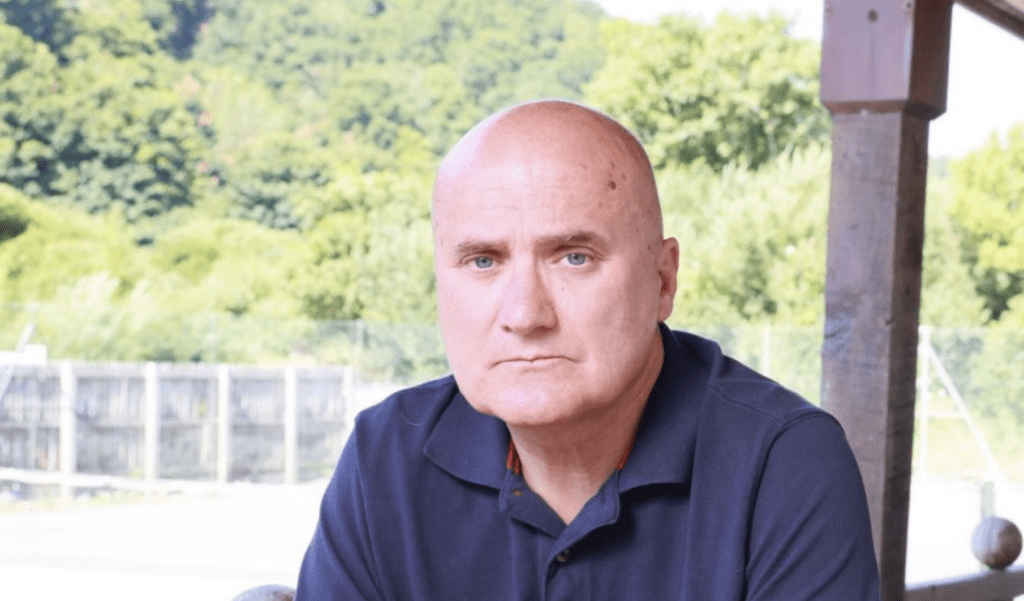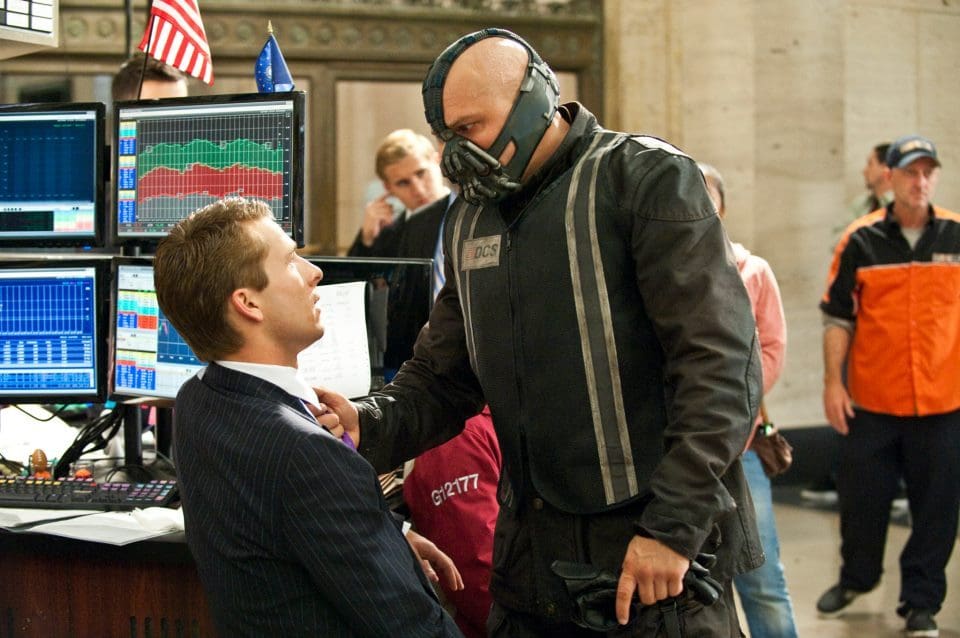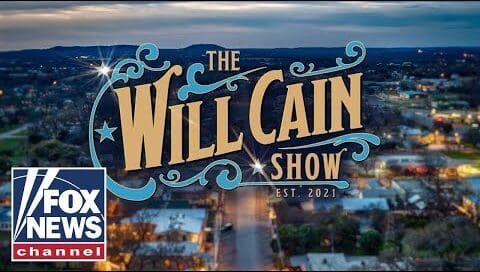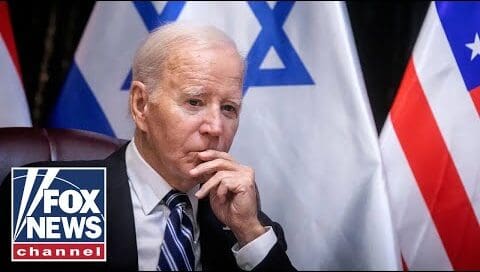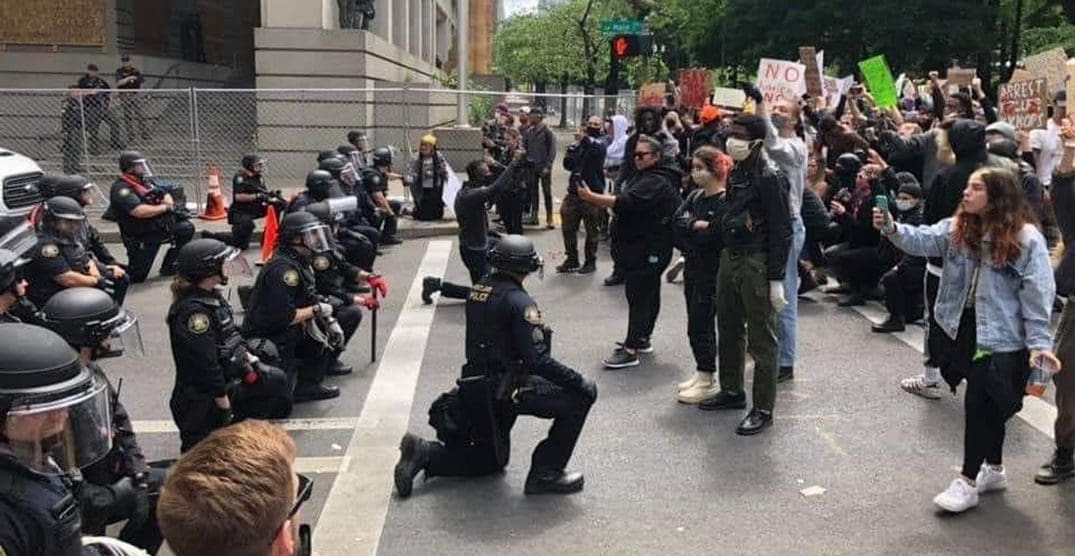

When Did the Police Become the Thought Police?
Events in other parts of the world have so distracted me lately that it was with some embarrassment that I had to admit, when I ran into Harry Miller at a House of Lords free speech event recently, that I had only “vaguely heard” of his Bad Law Project. Well, I’ve definitely heard about it now: the fearless free speech champion was arrested on Thursday for standing between police officers and their intended target, a military veteran of many years honourable service. The background to this event can be found here, with videos of the event (in chronological order) here, here, here and here.
The ex-soldier’s supposed crime? He had posted a trans-BLM-swastika on social media. This emblem was originally designed and posted by Laurence Fox and re-posted by many others – including the Daily Mail. Its purpose was to highlight the authoritarianism of “trans-activist” groups such as Stonewall, whose influence runs so deeply in the police (and in Whitehall, local government, universities and employers) that one of the attending police officers was even, according to Harry’s report, wearing a rainbow badge saying “Hampshire Police” on it.
Harry is right to say that the rainbow flag is a political symbol, and that the police are legally obligated to be impartial (but they aren’t). Imagine the situation at some Hampshire Constabulary office where these same officers were sitting down assessing the complaint they’d apparently received about the ex-soldier’s post mocking the rainbow flag – which is a lawful statement in common law and also protected by Article 10 of the ECHR. They can hardly have been unbiased – one look down at their rainbow badges would have told them what to do. They simply cannot claim that they acted impartially when they themselves wear as insignia the very symbol being mocked.
Thus, the arrests of Harry and the military veteran look political – that is, the police are acting as the enforcement arm of a contentious political creed. A shocking statement to make, but true. Indeed, the police actions were so sinister that I began to speculate whether, in fact, by wearing these political badges while purporting to act as the police, they are themselves in breach of the Public Order Act 1936 – a statute that was intended to suppress the public marches and quasi-military pretensions of Oswald Mosley’s British Union of Fascists.
I doubt Hampshire Constabulary will be arresting themselves for a public order offence –quis custodiet ipsos custodes? – but comparisons to political police forces in totalitarian societies might not be all that hyperbolic. As Justice Julian Knowles said in Harry Miller v. College of Policing:
The effect of the police turning up at his place of work because of his political opinions must not be underestimated. To do so would be to undervalue a cardinal democratic freedom. In this country we have never had a Cheka, a Gestapo or a Stasi. We have never lived in an Orwellian society.
In that case, the judge ruled that it was unlawful for Harry Miller to have been questioned by police to “check his thinking” over a supposedly anti-trans comic verse. How much more unlawful, then, to arrest Harry in defending another man for something rather similar? The police would call that an aggravated offence. The police consistently fail to recognise, despite it having been pointed out on numerous occasions by courts up to and including the European Court of Human Rights as far back as 1980, that being offensive is not an offence – or else “who should ’scape whipping?” And following Harry Miller v. College of Policing, the College of Policing recently issued new guidance supposedly making this clear (if it wasn’t already). But the police don’t seem to be listening to the very public pronouncements of the courts, or even to their own standards body. And it seems that instead of the now-discredited “non-crime hate incident”, police are still recording nonsense complaints, this time calling them “other incident: non crime”.
The police were recently mocked for driving round a rainbow-themed billboard on the side of a van which said being offensive is an offense, which clearly shows their deep misunderstanding of the law as well as their favouritism towards certain causes. But to see how real and pervasive the politicisation of our police has become, one simply has to observe their hands-off approach to the BLM riots, offering on one notable occasion a “non-visible style of community policing” and their bending of the knee on those occasions when they did show up – and compare that with their handling of pro-Brexit or anti-lockdown protesters. The police march with the Pride Parade – they don’t send out the Territorial Support Group.
These actions of the police are causing a deepening division in our overwhelmingly tolerant and civil democratic society. They seem to think we’re all anti-trans racist bigots, but the problem with cops enforcing the political agenda of organisations like BLM or Stonewall is that we do not live in a racist or anti-trans society, and it is the police who are increasingly looking like partisan, intolerant bigots.
As Sir Trevor Phillips – who knows something about police bigotry – said in his speech to that same recent House of Lords event, before an audience including the likes of the Maya Forstater and Allison Bailey (both now victorious in their free speech battles):
There is nobody here who does not believe that somebody who thinks they were born into the wrong body shouldn’t be treated equally, and shouldn’t [have the] same privileges, rights and compassion as anybody else. There are no transphobes here.
That is to say, those who oppose these authoritarian travesties being committed by organisations such as employers or the police are not attacking trans people. Nor are we racists – as Trevor Phillips might have said, if it weren’t already obvious. What is at stake is whether we can make statements such as “trans women are not women”, “all lives matter” or “I don’t want to live in some sort of alcohol-free Muslim caliphate” without being investigated by the police – even when some people take offence. Trevor Phillips went on to say:
There is no right not to be offended. That is part of what it means to live in a democracy.
So the problem is not with Harry Miller, or with the ex-soldier. The problem is with those who, possibly at the urging of BLM, Stonewall or other groups, break the law by harassing, intimidating and alarming innocent citizens. In this case, the problem is with Hampshire Constabulary. On the previous Sunday, when three officers visited the veteran at his home, their motives were clear: they threatened him with arrest unless he paid £60 and agreed to go on a course that the police said would “re-educate” him.
I wonder who wrote that re-education course? Did any outside organisations contribute to it? Does this course accurately reflect the law? I sincerely doubt it, and Hampshire Constabulary have said they won’t provide that information absent an FOI request. But the irony is, of course, that they are the ones who need re-education – not in some Maoist fashion, but by innocent citizens not bowing to their madness, by the courts issuing harsher penalties against constabularies for false arrest under circumstances that so clearly contravene established law – and by reform of the law.
In the United States, there is a citizens’ movement of “First Amendment Auditors” (whom the police, sometimes quite understandably, loathe), who visibly exercise their rights to free expression under the law – for instance, by videotaping in a public place. This often results in them being unlawfully arrested, but it does seem to have had the effect of forcing some police departments to revise their policies and training procedures – if only because the judgements for false arrest can easily get into the tens of thousands of dollars, making it a lucrative business. (The popular YouTube channel “Audit the Audit” documents some of their efforts with informed commentary.)
I hesitate to suggest that we need something similar in this country, mainly because it might (at least in the short term) cause the police’s already woeful performance in solving crime to sink even lower. In one area of Aldershot near where Harry Miller was arrested, police have solved none of the 83 burglaries committed over the past three years. Yet they sent no fewer than five officers to this non-incident, resulting in probably reams of paperwork – not to mention the financial costs of defending the claims that’ll soon be made by the arrestees. (Laurence and Harry’s Bad Law Project has already issued a letter before action.) What a gigantic waste of time, money and resources. So wouldn’t it be marvellous if instead of these officers policing our tweets, they could instead police our streets?
It’s unsurprising that the Hampshire Police and Crime Commissioner said:
I am concerned about both the proportionality and necessity of the police’s response to this incident. When incidents on social media receive not one but two visits from police officers, but burglaries and non-domestic break-ins don’t always get a police response, something is wrong.
One has to ask: How did we get into this crazy mess in the first place? It wasn’t always like this.
Perhaps surprisingly to those who’ve grown up in an increasingly repressive society, in recent history the law around speech wasn’t all that different, in effect, from U.S. law. It began to diverge significantly with the introduction of the Race Relations Act 1965, enacted in response to the considerable racism and violence stemming from sections of society following the wave of immigration that began in 1948. Firstly, this created a civil offence to prevent refusal of service or other discrimination on the basis of race in hotels, bars, theatres, etc. In this limited respect it paralleled events in the U.S., where the Civil Rights Act had been enacted the previous year. However, the Race Relations Act also created, in clause 6, the crime of “incitement to racial hatred” – a momentous change in the law regarding speech.
Before that point, the law required that for speech to be unlawful, it had to be intended to cause – or at least be likely to cause – a breach of the peace. The term “breach of the peace” means “when a person reasonably believes harm will be caused, or is likely to be caused, to a person or in his presence to his property, or a person is in fear of being harmed through an assault, affray, riot, unlawful assembly, or some other form of disturbance”. This arose from the Public Order Act 1936, occasioned by the threat to public order of the British Union of Fascists, and which effectively (though not technically) replaced the common law crime of “incitement [to violence]” in this area. The point is that for speech to be criminal it had to be – based on a reasonableness standard – likely to lead to violence.
However, the 1965 Act went beyond this to create a criminal offence in circumstances where speech was likely to inculcate in the mind of the hearer a feeling of hatred towards a particular racial or ethnic group, decoupled from any likelihood of violence or the threat of violence. In relation to the former common law offence of “incitement”, this law effectively made the offender guilty as an accomplice before the fact of an imaginary, hypothetical crime of violence: one that had not been committed, nor would likely ever be committed.
It’s worth quoting at length from the then Labour Home Secretary, Sir Frank Soskice, in the Commons debate in which he addresses criticism from the Opposition of clause 6 in a manner that will be familiar to anyone who has ever argued for free speech:
[…] would they on reflection, really wish to retain such a liberty [as the liberty to cause hatred] in so far as the existing law allows it? I am positively certain that there is no Hon. Member of the House who would dream of wishing to exercise it. I said in so far as it is allowed under existing law.Our common law, as interpreted in his summing-up to the jury in the well-known Caunt case [a failed seditious libel case against an anti-Semitic newspaper article that arguably led to violence] by the late Lord Birkett, provides that to seek to promote violence by stirring up hostility or ill-will between classes of Her Majesty’s subjects is a serious criminal offence punishable by imprisonment. The common law offence requires an intention to stir up disorder. When hatred has been stirred up history, unfortunately, shows only too clearly that violence and disorder are probably not far away.
Clause [6] substitutes an intention to stir up hatred for an intention to stir up disorder. That is far from a momentous change.
The final paragraph is a fine example of rhetorical legerdemain, since the law for the first time made citizens in some sense responsible for the thoughts of their fellows. And the answer to the question of whether such a liberty – to create feelings even of hatred in the absence of any likelihood of violence – is a liberty worth having or defending must clearly be “yes”, since as Justice Sedley famously observed: “Freedom only to speak inoffensively is not worth having.”
Yet even where the text of the Race Relations Act formally decoupled hatred from violence, the stated intent of the law was nevertheless to prevent such speech on the grounds that “violence [would] not [be] far away”.
This is an absolutely crucial point: at that time, the justification for such legislation was, ultimately, to prevent violence, even where violence were just a dim and distant prospect. A noble aim, under the circumstances. But while it may be the case that hatred (as distinct from greed, envy and so on) can lead to violence, this begs the question of whether suppression of “hate speech” decreases the likelihood of violence: it is merely assumed to be true. I won’t offer a detailed argument to the contrary, but will observe that such arguments are very possible and even compelling – for instance, with reference to 1920s–30s Germany (where Hitler’s popularity arose in some measure from the suppression of his speech), the English Civil War, etc.
It was clear at the time that the Conservative Opposition understood that the proposed Bill was very much not “far from a momentous change”. Quoting W.R. Rees-Davies in the same debate:
On that point, does the Right Hon. and learned Gentleman not recognise that this particular matter is absolutely plain? Hatred is not in any way linked whatsoever to the creation of a breach of the peace or a public disorder. Clause [6] does not relate to them at all. The Right Hon. and learned gentleman referred to them being likely to stir up hatred, but says nothing whatever as to whether there was any likelihood of a breach of the peace. That is what is wrong with it.
The question might have been asked, that once hatred in the mind of the public became regulated, ought not the law also regulate other feelings, such as hurt and distress? This is, of course, what has happened.
Following the Southall riots in 1979, a review was conducted into the public order legislation. Again, the basis of the review was to prevent actual public order disturbances. Yet, under this cover, clause 5 of the Public Order Act 1986 made it unlawful to use “insulting” language in a manner likely to cause “distress”. Note that, in the words of the then Home Secretary, “we have abandoned the requirement of proof of actual alarm, harassment or distress”.
Further, the Malicious Communications Act 1988 criminalised the sending of a message that is “indecent or grossly offensive” and which causes “distress or anxiety” to the recipient.
The Blair-era laws went further, extending the legal protections of persons based on race (which, in the words of Soskice, is a characteristic “nobody can help”) to the protection of elective characteristics such as religion, gender identity, and so on. In addition, the Communications Act 2003 criminalised the sending of a “grossly offensive, indecent or obscene message” without the requirement that the message ever even be received by anyone, let alone perceived as hurtful.
We have sadly entered the Orwellian realm of thought policing. So to restore our freedom of speech we should not simply tinker around at the edges with slight changes to this or that law (as has been done), but seriously reconsider the fundamental principles at stake. Instead of regulating the thoughts and emotions of our citizenry, we should have greater respect for the speech rights that were so dearly won for us over past centuries, and revert to something similar to the status quo ante, narrowly defining unlawful speech by requiring there to be evidence of potential violence (not just some vaguely defined “harm”).
The well-argued U.S. jurisprudential standard established in Brandenburg v. Ohio, which prevents government interference in speech of this type unless it is “directed to inciting or producing imminent lawless action and is likely to incite or produce such action” might be too much for many to stomach, but a thorough overhaul of the laws that have led us to the point where a petty, grievance-mongering individual can perhaps gleefully bring about the infliction of violence – i.e., forcible arrest and imprisonment – based very likely on nothing more than a false claim of victimhood, is long overdue.
The type of complainant in this case, as well as the police, are now the ones frequently likely to be responsible for what the U.S. Supreme Court called “imminent lawless action”. This should not stand.

